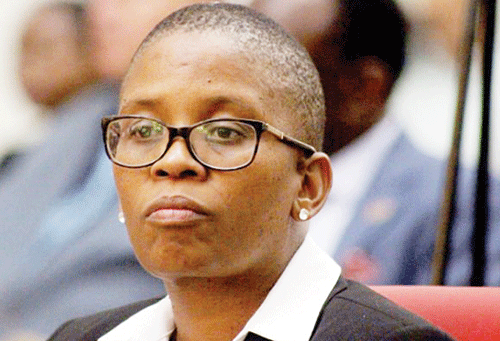Justice minister Yvonne Dausab has expressed concern over the rising number of bogus rape cases filed “just to abuse and extort” the accused and force them to comply with the complainants’ requests.
Dausab expressed her concerns this week in response to MPs’ contributions to the National Assembly’s Combating of Rape Amendment Bill, saying she has been made aware of cases where members of society are exploited and extorted because they are afraid of being prosecuted for rape after having consensual sexual intercourse.
“I was quite alarmed and raised this issue at a meeting with senior law enforcement agents, of the gender-based violence protection unit in Windhoek,” she said.
“It was confirmed that these cases are on the increase and they are doing their best when reported to investigate and have the PG consider prosecution where appropriate.”
She acknowledged that these are difficult instances, but she also said law enforcement is well aware of the problem and has raised concerns about their inability to always find the right charge for these new types of activity.
“Many of those who fall victim to these syndicates rarely report the offence to the police. Moreover, the standard for conviction in a criminal trial, ‘guilty beyond a reasonable doubt’, is very high. False convictions, while not impossible, are unlikely,” she told MPs.
She said any false accusations made are not taken lightly.
“Persons who do so may be charged with perjury in terms section 300(3) of the Criminal Procedure Ordinance 34 of 1963. False statements made under oath to the police are further punishable under Section 9 of the Justices of the Peace and Commissioners of Oaths Act 16 of 1963,” she said.
Alternatively, Dausab said this is consistent with the elements of the crimes of extortion, theft under false pretences, defeating or obstructing the course of justice, or fraudulent misrepresentation, it is possible that charges could be considered if warranted by the circumstances.
Equally, she said this behaviour on the part of especially young women should be condemned.
Dausab also addressed MPs’ concerns about the imposition of minimum rather than maximum penalties, and how this could be unlawful.She said it should be clarified that section 3(2) of the Combating of Rape Act prescribes that if a court is satisfied that substantial and compelling circumstances exist which justify the imposition of a lesser sentence, then the court shall enter those circumstances on the record of proceedings and may thereupon impose such lesser sentence.“That being the case, the rule of law is not undermined and the independence of the Judiciary remains intact with judges still given the discretion of imposing lesser sentences than those prescribed in the Act,” Dausab said.
She said although, there is no conclusive evidence to prove that stiffer sentences do not deter or reduce the rate at which crimes are committed, it does however express a nation’s attitude towards a particular crisis.
Unlike the sanctions provided in line with the Stock Theft Act 12 of 1990, Dausab said the sanctions proposed in the Bill are proportionate to the offence committed.
She said this is due to the continuous emotional, physical, and mental damage that the crime has on the victims and their families.
“So, I agree in principle that we should continue to consider various responses until we have a complete change in attitude,” she said.



